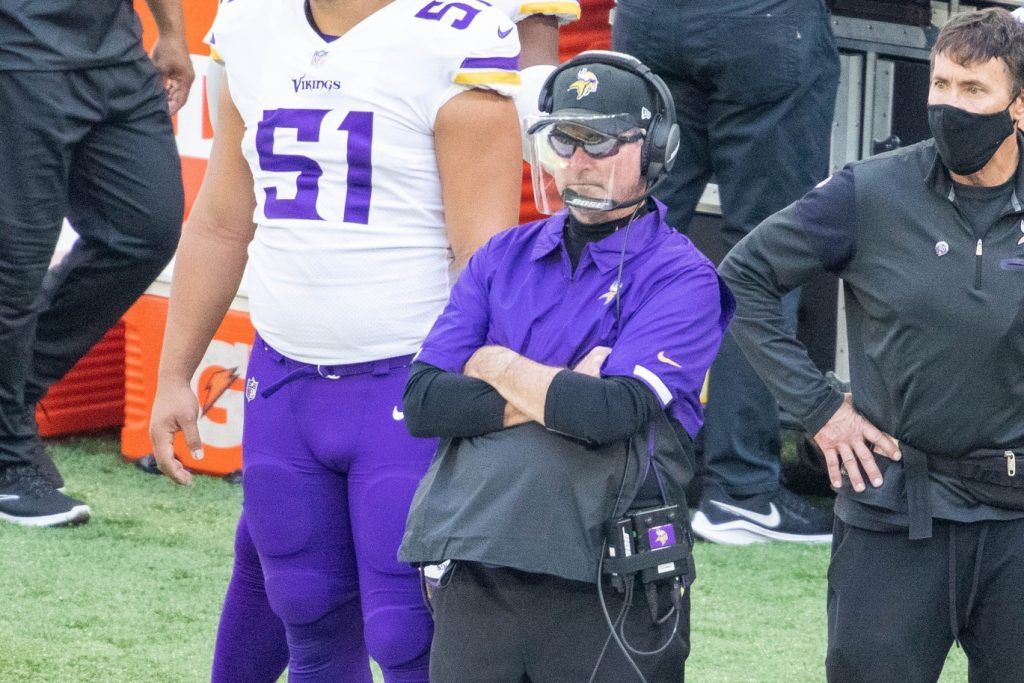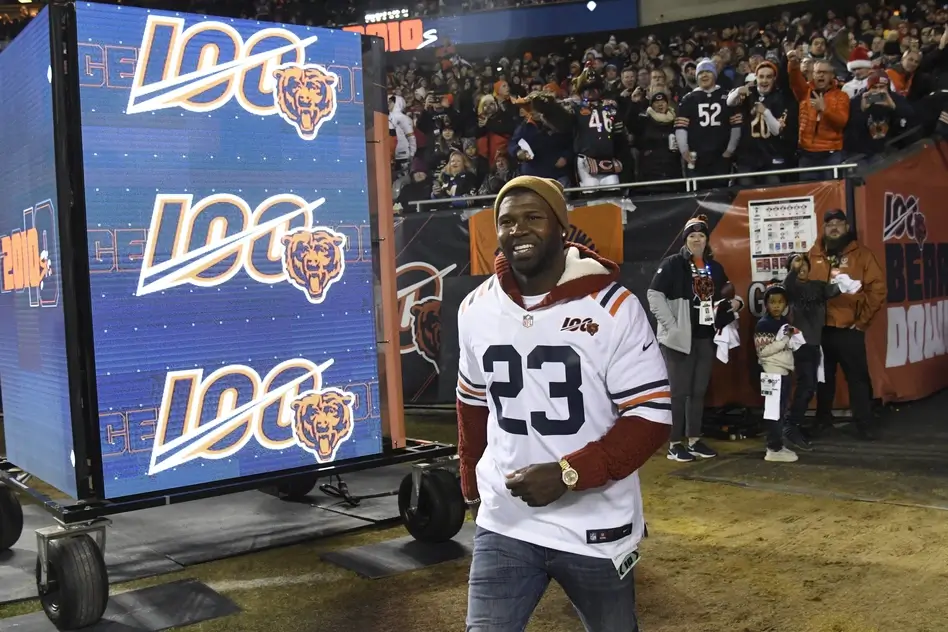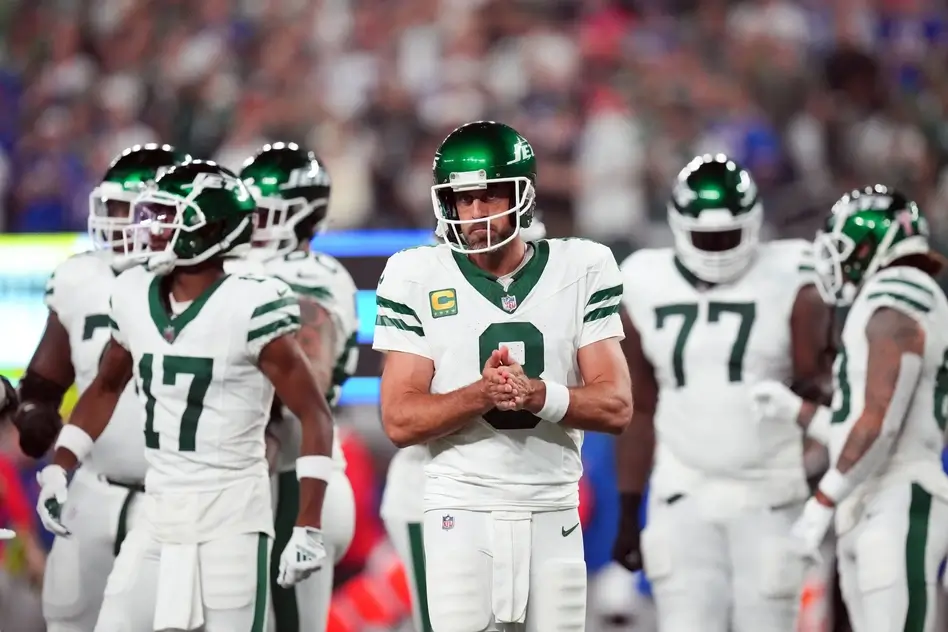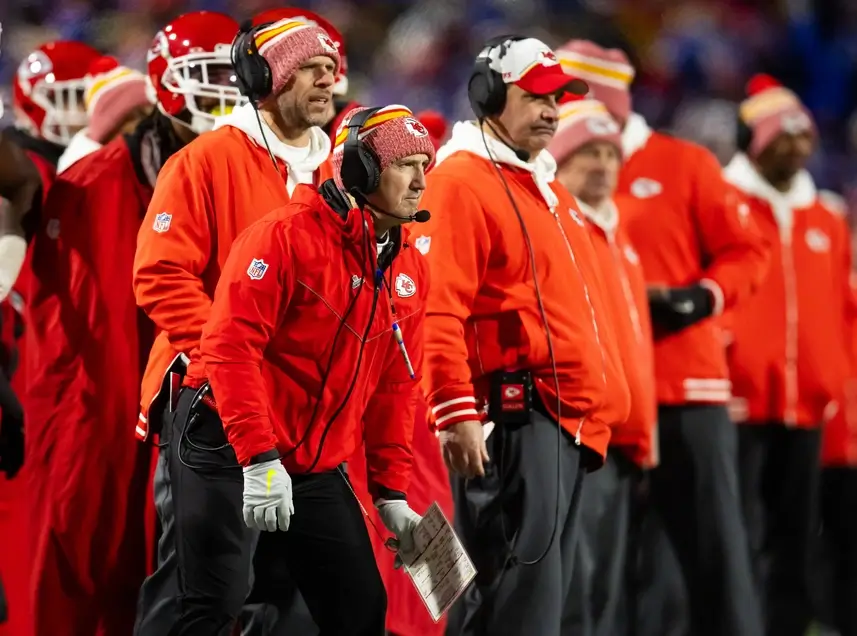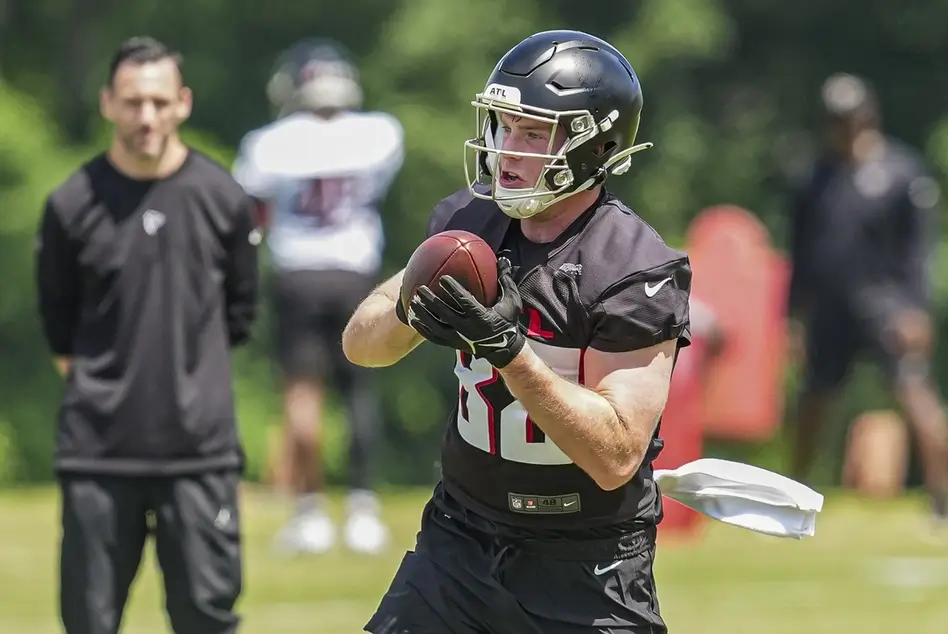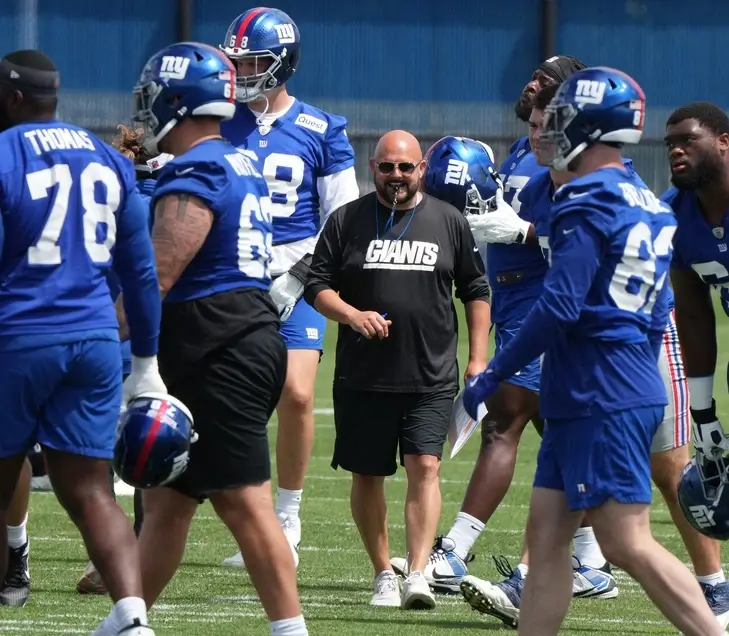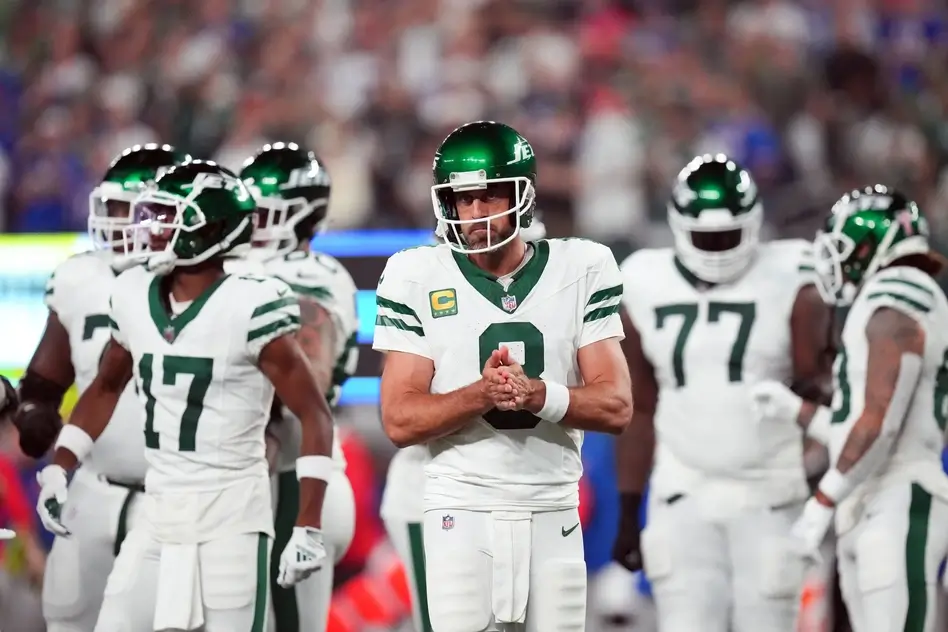Mike Zimmer had no business going for it on 4th-and-inches deep in Seattle Seahawks’ territory, no matter what the numbers say.
Zimmer is an outstanding head coach, but his decision to shun a short field goal when leading by five late in the fourth quarter cost the Minnesota Vikings. Failing to covert allowed Russell Wilson to lead a lengthy drive that ended with a game-winning touchdown pass to DK Metcalf on Sunday Night Football.
The 27-26 setback wasted an otherwise outstanding Vikings performance. It’s the kind of heartbreaking reversal a 1-4 team is unlikely to get over.
Zimmer doesn’t regret passing up trying a field goal from the Seattle 6 with two minutes left:
The numbers give Zimmer reason to be bullish. Michael Rand used figures from Pro Football Reference in an article for the StarTribune to make the point:
The Vikings’ win probability as they faced 4th-and-1 from Seattle’s 6 with 2 minutes left and a five point lead was 90%.
A field goal would have decreased that slightly to 89.9%, assuming Seattle got the ball at its own 25 down 8 with just under 2 minutes left.
Going for it and making it would have increased the probability to 99%, while getting stopped (the outcome that happened) decreased that to 77.9%.
I don’t care what the numbers say, Zimmer was wrong. He was wrong, wrong, wrong.
The numbers don’t account for three things. Notably, the opposition, emotional impact, and the need to maintain control.
In this case, the opposition was Wilson, the best quarterback in the NFL in 2020. Wilson’s too dangerous to try and stop in a one-score game.
Kicking a 24-yard field goal would have set Wilson a target of scoring a touchdown and successfully converting a two-point attempt. That’s something the Seahawks couldn’t do even after the Vikes had gone for it and failed.
Having an eight-point cushion instead of five would have meant overtime, even if Wilson had managed to tie it in the dying seconds. Zimmer’s reckless gamble took the game out of the Vikings’ hands and handed the initiative to Seattle.
His decision put the onus on a deflated defense to make a clutch stop in crunch time. Minnesota’s D’ lost its swagger after the botched 4th-down attempt meant Eric Wilson‘s interception with just over five minutes remaining came to nothing.
Wilson’s theft put the Vikings in a position to add to their lead. The drive stalled inside the 10, but Dan Bailey would have nailed the chip-shot three-pointer. He’d already been successful from 52 and 46 yards.
Defenses love it when their turnovers are converted into points. It wasn’t to be, and Zimmer ignoring Bailey’s reputation as a clutch kicker wasn’t the only reason why.
The Vikings played almost the entire second half with bell-cow running back Dalvin Cook nursing injury on the sideline. It meant Kirk Cousins putting the ball in the hands of backup Alexander Mattison to try and ice the game.
Mattison had topped 100 yards on the night, but he erred in the decisive moment:
Zimmer didn’t trust a former Pro-Bowl kicker but instead put his faith in a reserve running back to convert in a key short-yardage situation.
In the process, Zimmer put his defense in a bind. The Seahawks only needed one score but had nearly 95 yards to go.
Caught between two stools, Minnesota’s defense lacked a coherent plan on the winning drive. Zimmer tried to be aggressive by blitzing Wilson, but he was passive at other times, like when Metcalf converted a 4th-and-10.
Holding an eight-point lead would’ve let the Vikes lean on coverage and use the clock against Wilson. There wouldn’t have been the uncertainty that saw them flip-flop between risk and caution.
The indecision came from the Vikings no longer controlling the outcome. Wilson and the Seahawks had control because they had a clear target, end zone, or bust.
Minnesota played tough on both sides of the ball on the road against a legit Super Bowl contender but still lost. Zimmer shouldn’t be allowed to hide behind playing to win or being aggressive.
He made a decision that took control out of his players’ hands. It went against the high-percentage football they’d played up to that point.
Zimmer’s faux pas highlights the dangerous game coaches play whenever they play the numbers and not the game on the field. Decisions should be based on the quality of opposition, personnel at a coach’s disposal, and momentum. Not a math formula.


